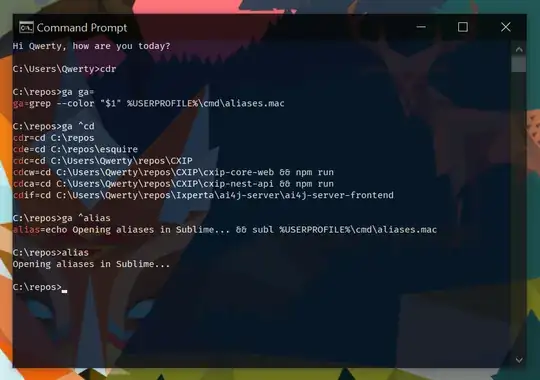How can I make command aliases in Windows' Command Prompt like I would with bash?
I found out about doskey in a forum thread, so I can do something like:
doskey ls=dir /b
...and now the command ls acts a little more like ls on Unix. (I type ls so often in cmd, it isn't even funny.)
But how do I get this to stick between sessions? It goes away the next time I open cmd.exe. (Is there something like .bash_profile?)
